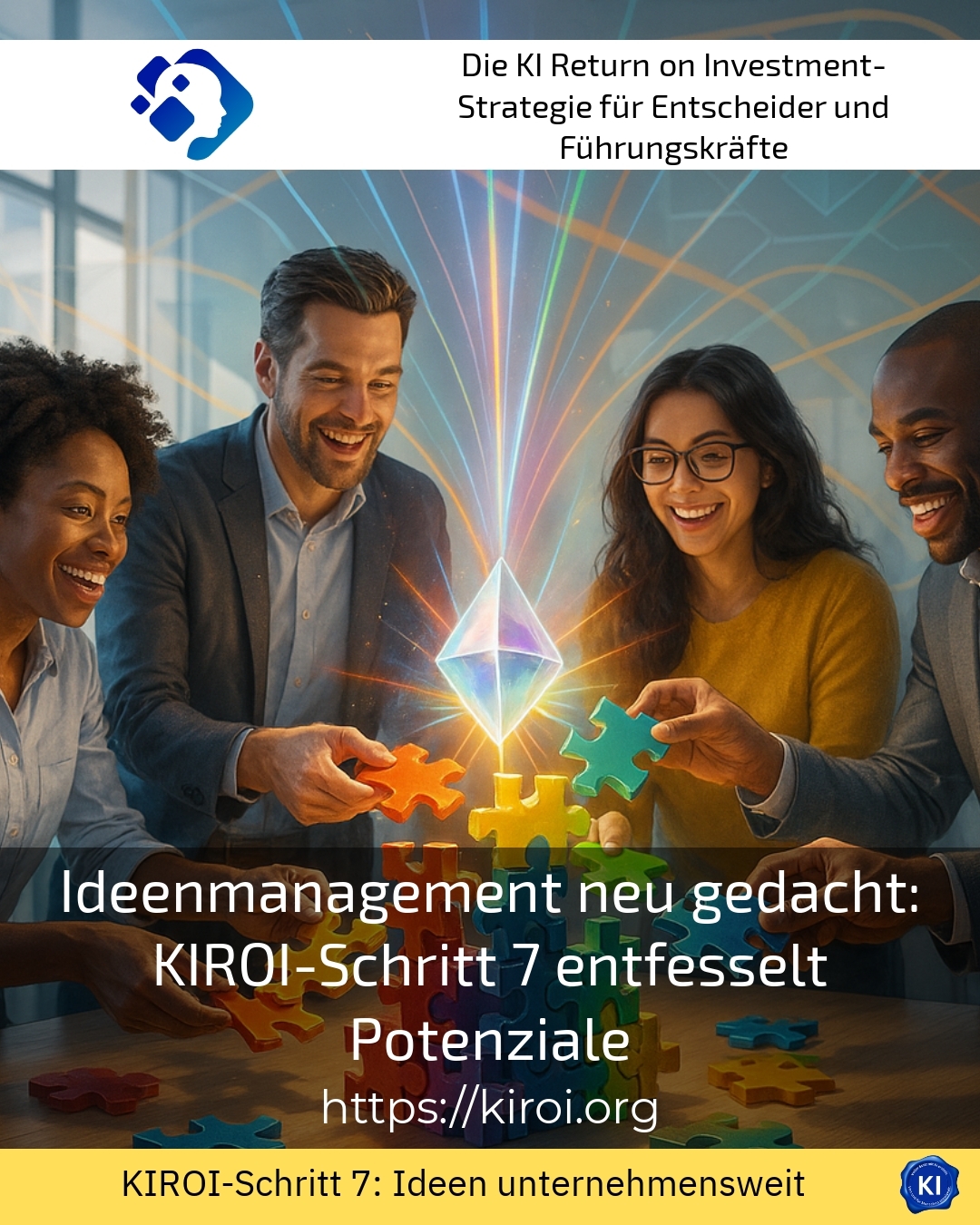Today, idea management is more than just collecting suggestions - it is a key lever for unleashing innovation potential within a company. KIROI Step 7 offers a modern and holistic approach that rethinks idea management. Instead of selective actions, this step promotes sustainable support and systematic implementation of ideas. In this way, creative impulses are utilised in the best possible way and transformed into realisable solutions.
Idea management as a continuous support process
Many companies experience that although numerous suggestions are received, they often remain unused. This is precisely where KIROI Step 7 comes in and establishes idea management as a lively, dynamic process. This means that ideas are not only collected, but also actively reflected upon, evaluated and jointly developed.
An example from the automotive industry shows how moderated workshops using Step 7 can lead to production optimisation. Employees exchange ideas openly, reduce resistance and find new approaches together. Similarly, financial service providers report on agile teams that improve their IT processes by quickly implementing customer ideas. In retail, digital platforms ensure that ideas from different branches are evaluated transparently and then transferred to innovative projects.
BEST PRACTICE with one customer (name hidden due to NDA contract) Step 7 of the KIROI approach was implemented in a medium-sized production company in order to accelerate innovation processes. Targeted workshops and coaching measures helped to break down cross-departmental blockages. Employees felt more involved, which significantly increased motivation and the speed of product development.
Practical tips for successful idea management
In order to use KIROI step 7 effectively, it is recommended:
- To facilitate regular and moderated dialogue between all departments involved in order to integrate different perspectives.
- Use digital tools that ensure transparency throughout the entire process - from idea submission to implementation.
- To offer accompanying coaching that supports teams in the development and realisation of ideas and addresses obstacles.
- Establish a reward and feedback system to encourage the commitment of idea providers in the long term.
In mechanical engineering, for example, a combination of digital idea collection and coaching led to the successful introduction of new production technologies. In the energy sector, accompanied workshops helped to implement sustainable solutions through employee suggestions. The service sector has also shown that continuous feedback strengthens the acceptance and implementation of improvements.
KIROI step 7: More than just collecting ideas
This step means integrating idea management as a process deeply into the corporate culture and strategy. It is about recognising blockages at an early stage and proactively removing them. In this way, a suggestion scheme becomes a catalyst for sustainable change.
In the healthcare sector, for example, teams report that the use of Step 7 has made communication and the realisation of process improvements much more flexible. In the logistics sector, the systematic monitoring of ideas led to considerable time and cost savings. New learning formats could also be introduced more quickly in the education sector because ideas were closely monitored and continuously optimised.
The importance of transruption coaching in idea management
Transruption coaching acts as a central companion. It supports teams in breaking down ingrained thought patterns and developing new perspectives. This not only promotes creativity, but also the concrete implementation of suggestions in everyday life.
In the retail sector, for example, coaching improved collaboration between store and online teams, which led to the introduction of an innovative service concept. In the manufacturing industry, coaching helped to remove barriers to the introduction of new technologies. In the IT sector, transruptions coaching helped agile teams to respond quickly to customer feedback.
My analysis
KIROI Step 7 impressively demonstrates how modern idea management can be rethought. It moves away from isolated suggestions towards a sustainable, supportive process that involves all employees and consistently realises potential. Companies that pursue this approach report increased innovative strength, improved collaboration and noticeably higher employee motivation. Idea management thus becomes a motor for continuous growth and competitiveness.
Further links from the text above:
What is idea management? Definition, procedures and proven methods
Efficient idea management: KIROI step 7 promotes innovation
Rethinking ideas management: KIROI step 7 in corporate use
For more information and if you have any questions, please contact Contact us or read more blog posts on the topic Artificial intelligence here.















